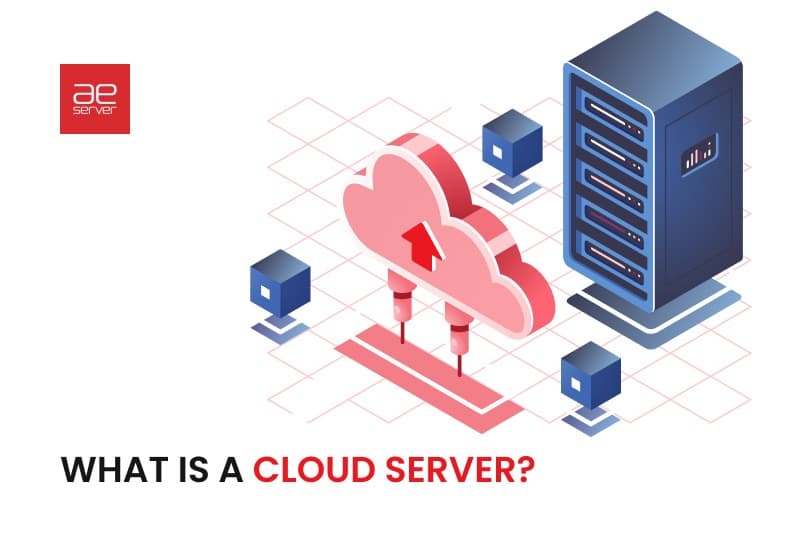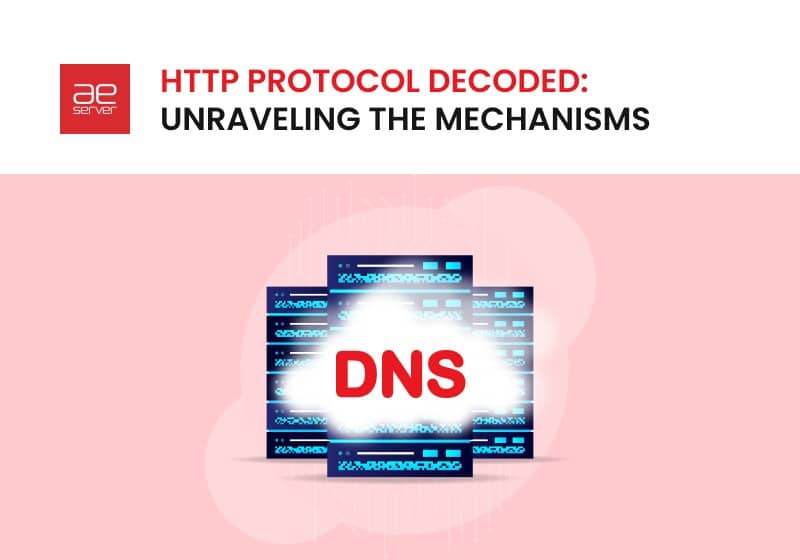
Private Cloud vs Public Cloud: Choosing the Right Cloud Computing Model
In today’s digital age, cloud computing has become the backbone of our networked world. It’s like having superpowers for handling data and applications. But when choosing the right cloud computing model, you have an important decision. Which will you choose: private cloud vs public cloud? It’s akin to choosing between a secluded island and a bustling city. Each has its pros and cons. The choice can have a significant impact on your business or personal needs. Imagine that your data is your most valuable asset. Do you want to store it in a secure vault accessible only to you and your trusted contacts? Or do you prefer an open book? You like the hustle and bustle of the public marketplace. Your data is mixed with others, with all the convenience and shared resources that entails. In this study, we’ll dive into the fascinating world of cloud computing. We’ll help you make the right choice for your unique needs. Private or public cloud? Let’s find out!
Private Cloud
A private cloud could be a sort of cloud computing that gives devoted assets. It’s comparable to owning a house. In a house, you have complete control over the space. In a house, you have complete control over the space. You can furnish it according to your needs. It is generally the same with a private cloud. You have full control over your assets and can customize them according to your needs. Be that as it may, owning a home involves responsibilities such as support and maintenance, as does a private cloud. You are responsible for managing your assets. It includes keeping the system up and running and ensuring that it runs smoothly. In terms of cost, this type of cloud can be more expensive than other types of cloud computing. It is often because you are mindful of all the costs of maintaining the structure. Despite these costs, this cloud has an important advantage: security. Because assets are not transferred to others, a private cloud is more secure in most cases. It makes it a great choice for businesses dealing with sensitive information.
Benefits of Private Cloud
If we compare the private cloud vs the public cloud, the private cloud provides a high level of security. They are excellent at protecting data. It makes them ideal for storing sensitive information. Sensitive information can be anything that simply shouldn’t be seen by others. It can be individual nuances or company insider data. Another advantage of this private kind is that they are customizable. It means that you can change them to suit your needs. You will be able to modify your cloud resources according to your needs. It makes the private choice a flexible choice for many companies.
Limitations of Private Cloud
Despite the excellent advantage over the public cloud, private choice has disadvantages. By choosing more privacy, you pay more. That is, private cloud choice is a premium advantage. To create a private cloud, you must spend money on hardware and computer programs. It includes:
- Purchasing servers
- Storage devices
- Appropriate software
You also need to spend money on keeping everything in good shape. It involves checking the system, fixing problems, and updating software. Managing a private cloud is not an easy task. It requires a good understanding of IT, which means data innovation. For smaller companies, this can be a challenge. They may not have someone who has a good understanding of IT. So, while a private cloud can provide greater control and security, it can be more complex and costly.

Public Cloud
The public cloud is like renting an apartment in a bustling city. Instead of owning the entire space, you share resources with other people, like sharing with neighbors. In this form, you get access to a pool of computing resources, much like the shared amenities in an apartment complex. Unlike a private cloud, where you are in complete control, in a public cloud, you share space with others. You don’t have to worry about maintenance and upkeep. The cloud provider takes care of all the worries. It’s like a landlord managing the building for you. Comparing private cloud vs public cloud, the public choice affects costs. They are often lower. You only pay for what you use. It makes this option cost-effective. However, the trade-off is less control over resources. For highly sensitive information, they may not be as secure as private clouds. But they still provide solid protection. Public clouds are a popular choice for companies that want scalable and cost-effective solutions without managing infrastructure.
Benefits of Public Cloud
Open clouds can help you get free money. They work so that you only pay for what you use. If you use more resources, your fee goes up and vice versa. It is similar to how you pay for domestic utilities. You pay more for electricity if you use more resources and less if you use less. Public clouds are very convenient in that you can easily change the estimate in them. It is often called versatility. If you want more resources, you will get them. If you wish to have fewer resources, you can get fewer. You can do it easily and quickly. These clouds make an excellent choice for businesses with active and moderate periods of operation. It’s similar to having a party at your house. You effectively turn on more chairs when more people arrive and put the chairs away when people leave.
Limitations of Public Cloud
In an open cloud, you don’t have complete control over the assets. It’s like living in a rented apartment where you can’t change everything. You have to use the assets as they come with them. You can’t make major changes or customize them to your liking. Additionally, public clouds are less secure than private clouds. It is often because you are sharing assets with other people. It’s like vacating your entryway open in a shared apartment. It’s not a good option if you have profitable items that must be protected. Thus, open clouds are not the best choice for storing sensitive information. Sensitive information is data that needs to stay protected and confidential
Choosing the Right Cloud Model
Choosing a suitable cloud model is an essential decision in technology. It is akin to choosing the right car for your needs. There are two basic types of clouds: private and public. And there is a constant conflict between these two cloud options. Think of a private cloud as your own home. You have full control over it, but you must take care of it, such as mowing the lawn. Such a cloud provides the highest level of security and is ideal for businesses with super-secret information. If you need a high degree of security and control, a private cloud may be the best choice. You are in charge of everything and can ensure security. On the other hand, a public cloud is like an apartment in a big city. You share resources with others, but you don’t have to worry about maintenance – the landlord takes care of that. It is cost-effective and suitable for those who want a simpler solution, but for top-secret information, it may not be the best option. Thus, the choice depends on your needs. If you need control and security, go for a private cloud. If you want economy and simplicity, a public cloud is the best option. Make the right choice, and you will have a smooth journey in the cloud!
Factors to Consider
When picking a cloud model, think about these factors:
- Needs: What do you want from the cloud? Security? Savings? Speed?
- Budget: How much money can you spend on the cloud?
- Data Sensitivity: Is your data super-secret or not so much?
- Control: Do you want to be the boss of your cloud, or is shared space okay?
- Maintenance: Are you ready to handle the upkeep, or do you prefer a landlord?
- Scalability: Will your needs grow over time?
- Provider: Check who offers the cloud model you want.
- Security: Ensure your cloud is safe for your data.
- Support: Look for good customer service.
Think about these things, and you’ll make a smart choice for your cloud needs.
Hybrid Cloud: A Third Option
A hybrid cloud is a mix of private cloud vs public cloud models. It’s like ordering a combo meal at a restaurant. You get to enjoy the benefits of both meals in one order. A hybrid cloud is cost-effective because you only pay for what you need, just like you only pay for the food you order. Scalability is another feature of a hybrid cloud. You can easily increase or decrease your resources as needed. Think of adding more chairs to a table when more guests arrive and removing them when they leave. Security is also a key feature of hybrid cloud consulting. It’s like having a fence around your house and a security guard at the gate. It makes a hybrid cloud a flexible solution for many businesses. It gives them the best of both worlds – the security of a private cloud and the cost-effectiveness and scalability of a public cloud.
Conclusion
The choice between private and public cloud depends on your needs. You need to consider what you need and what you can afford. If you are on a tight budget, the public cloud may be a better option as it is usually cheaper. Well, be sure to keep essential factors like privacy in mind. It is one of the most critical aspects when choosing your future cloud. Confidential data needs to be protected. And only a private cloud can prove to be a reliable ally. If you are looking for a reliable private cloud provider, look at AEserver. Our company has gained popularity in the leading market in Dubai. Our commitment to security and superior service makes us the best choice to protect your data in the digital sphere. With AEserver, your work in the cloud is in safe hands.
FAQ
-
When should I choose a Private Cloud over a Public Cloud?
You should choose a private cloud over a public cloud if your organization has specific data security requirements. Private clouds provide more control over your environment. It can be useful if you have sensitive data or specific regulatory requirements.
-
What are the advantages of using a Public Cloud?
The advantages of using a Public Cloud include cost-effectiveness, scalability, and access to a broad range of services. Public Clouds often have lower upfront costs because they follow a pay-as-you-go model.
-
Can I use both Private and Public Clouds together?
Yes, using private and public clouds is a hybrid approach. It allows you to store sensitive data in a private cloud and use the public cloud for non-sensitive data or resources that require more scalability.
-
How do I decide which cloud model is right for my organization?
The choice between private, public, or hybrid cloud depends on your needs. Factors to consider include:
- Budget
- Security and compliance requirements
- Performance and scalability needs



